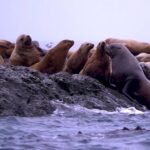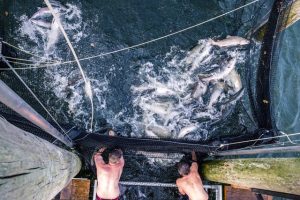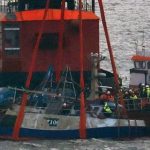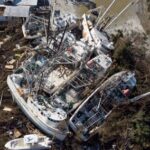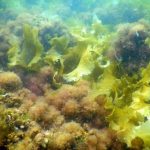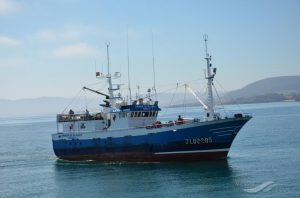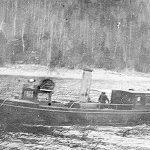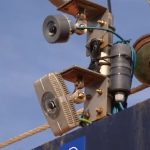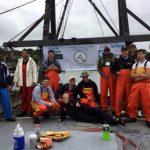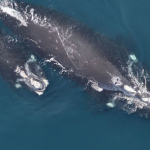Tag Archives: Oregon and Washington
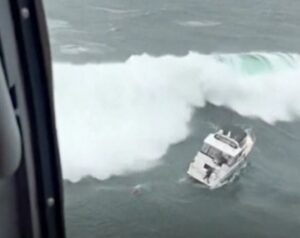
New Coast Guard swimmer saves man’s life after wave rolls yacht
A newly minted Coast Guard rescue swimmer saved a man’s life Friday at the mouth of the Columbia River between Oregon and Washington state just after a giant wave rolled the yacht he was piloting and threw him into the surf. The agency was able to triangulate roughly where the call was coming from, and Coast Guard crews on vessels and in a helicopter who happened to be training nearby responded. The rescue swimmer who was on his first rescue just after graduating from the Coast Guard’s rescue swimmer program, was lowered from the helicopter by a cable. As he neared the vessel, the man on board climbed onto the stern, preparing to get into the water. Video, >click to read< 08:17
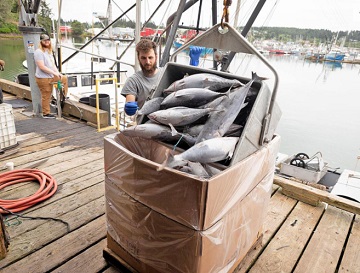
Too Few Tuna! Commercial season off to standard slow start
Safe Coast Seafoods and Ilwaco Landing each recorded their first offload of the 2021 commercial tuna season Monday, July 12 in Ilwaco. Landings have been slow to start the season, fishermen and processors reported, which is par for the course. August has historically been the month with the heaviest commercial tuna landings for Oregon and Washington, with the season wrapping up around October, depending on weather. “It’s a pretty typical start with fish scattered and in low numbers, but we are encouraged that the water temperature and sea life look more typical and are in good shape to hold large numbers (of tuna) as they come in,” >7 photos, click to read< 18:49
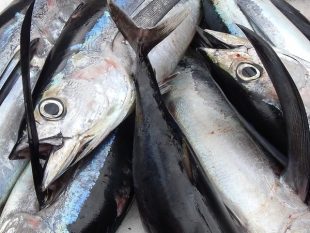
Two tough years for tuna Pacific Northwest fishermen
One skipper said it was his worst season in 15 years of fishing. Another classified it a “weird” year with scattered schools and undersized fish. For a second straight year, the news hasn’t been good for Oregon and Washington commercial tuna fisherman. According to official figures from the Pacific Fisheries Information Network (PFIN), commercial landings are down from the previous year, dropping significantly from the 10-year average in both states. August has historically accounted for a majority of the tuna caught in a given season, but this year substantial schools arrived later than anticipated, after a majority of commercial fishermen left or turned their attention to other fisheries. >click to read<08:45
Oregon lawmaker promises ‘dog fight’ over gillnets in legislature
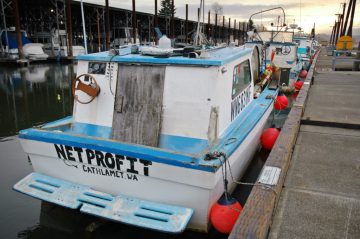 Oregon and Washington approved different plans for managing commercial fishing on the Columbia River this month, and one elected official predicted “there will be consequences” for walking away from a two-state compromise that would’ve phased out gillnets this year. Sen. Fred Girod (R-Stayton), said he was outraged by the Oregon Fish and Wildlife Commission’s vote Friday to keep allowing gillnets on the river, and he’s considering introducing either a ban on the fishing method altogether or charging a fee to commercial fisherman on the river. “We’re all trying to figure out what we can do,” Girod said. “I can guarantee there’s going to be a dog fight.” Oregon and Washington had pledged to phase-out gillnets on the main channel of the river as part of a compromise that averted a messy ballot fight in Oregon in 2012. The reforms didn’t apply to tribal fisheries. Read the story here 08:44
Oregon and Washington approved different plans for managing commercial fishing on the Columbia River this month, and one elected official predicted “there will be consequences” for walking away from a two-state compromise that would’ve phased out gillnets this year. Sen. Fred Girod (R-Stayton), said he was outraged by the Oregon Fish and Wildlife Commission’s vote Friday to keep allowing gillnets on the river, and he’s considering introducing either a ban on the fishing method altogether or charging a fee to commercial fisherman on the river. “We’re all trying to figure out what we can do,” Girod said. “I can guarantee there’s going to be a dog fight.” Oregon and Washington had pledged to phase-out gillnets on the main channel of the river as part of a compromise that averted a messy ballot fight in Oregon in 2012. The reforms didn’t apply to tribal fisheries. Read the story here 08:44
Crab fishermen strike for higher price per-pound from Bodega Bay north through Oregon and Washington
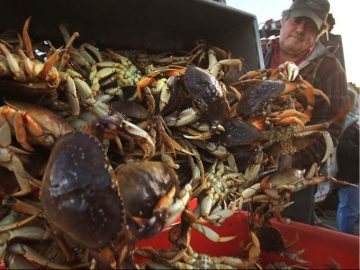 Crabbers from Bodega Bay north through Oregon and Washington to the Canadian border went on strike Wednesday afternoon after wholesale Dungeness crab buyers sought to lower the per-pound price fishermen earn for the much sought-after crustacean. Fishermen have agreed to either cease crabbing in areas off the Sonoma Coast where the Dungeness crab season has already opened, or delay the start of their season in hopes of retaining the $3-per-pound price they have earned fishing in Northern California’s rich waters so far this year, according to Lorne Edwards, president of the Bodega Bay Fisherman’s Marketing Association, an industry trade group. Read the rest of the story here 07:48
Crabbers from Bodega Bay north through Oregon and Washington to the Canadian border went on strike Wednesday afternoon after wholesale Dungeness crab buyers sought to lower the per-pound price fishermen earn for the much sought-after crustacean. Fishermen have agreed to either cease crabbing in areas off the Sonoma Coast where the Dungeness crab season has already opened, or delay the start of their season in hopes of retaining the $3-per-pound price they have earned fishing in Northern California’s rich waters so far this year, according to Lorne Edwards, president of the Bodega Bay Fisherman’s Marketing Association, an industry trade group. Read the rest of the story here 07:48
Despite delay, Dungeness maintain strong economic grip
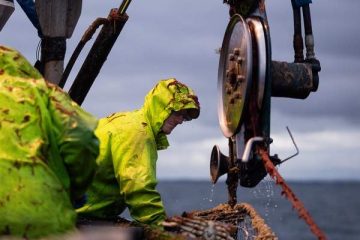 While some commercial crab fishermen are still trickling into ports in Oregon and Washington, the majority of commercial crabbing has slowed for the season as attention turns toward other fisheries. Those remaining are primarily doing so for the live crab market, which fetches top dollar. Oregon and Washington landings, The latest total for Oregon is 13.8 million pounds, according to the Oregon Department of Fish and Wildlife (ODFW) — a dramatic increase from the 8.2 million caught in 2014-15. The Port of Astoria has recorded 4.4 million pounds. Oregon landed 9.7 million pounds in January alone. In February 2.7 million pounds were recorded. The catch slowed to 700,000 in March and 440,0000 in April, respectively. Washington’s January catch also eclipsed the total for the 2014-15 season. Read the rest here 08:59
While some commercial crab fishermen are still trickling into ports in Oregon and Washington, the majority of commercial crabbing has slowed for the season as attention turns toward other fisheries. Those remaining are primarily doing so for the live crab market, which fetches top dollar. Oregon and Washington landings, The latest total for Oregon is 13.8 million pounds, according to the Oregon Department of Fish and Wildlife (ODFW) — a dramatic increase from the 8.2 million caught in 2014-15. The Port of Astoria has recorded 4.4 million pounds. Oregon landed 9.7 million pounds in January alone. In February 2.7 million pounds were recorded. The catch slowed to 700,000 in March and 440,0000 in April, respectively. Washington’s January catch also eclipsed the total for the 2014-15 season. Read the rest here 08:59
A Rosie Report! Observer program gets ‘sea legs’ as fisheries recover
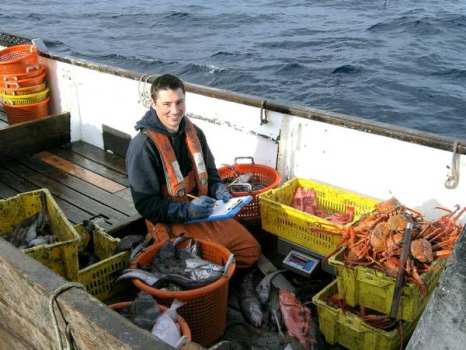 This summer, the alleged assault of a federal fisheries observer by a deck boss of a groundfish trawler from Astoria,,, Brad Pettinger, director of the Oregon Trawl Commission, called it a “renewal of the social contract that we have with the public.” Now, NOAA is juggling new questions ,, And observers, once viewed with distrust and even hostility, say their jobs have gotten easier. Read the rest here 18:00
This summer, the alleged assault of a federal fisheries observer by a deck boss of a groundfish trawler from Astoria,,, Brad Pettinger, director of the Oregon Trawl Commission, called it a “renewal of the social contract that we have with the public.” Now, NOAA is juggling new questions ,, And observers, once viewed with distrust and even hostility, say their jobs have gotten easier. Read the rest here 18:00
Endangered Species Act gone wild! The ENGO Northern spotted owl in the Coal Mine?, or Nature Prevail’s despite Meddling
 Endangered Species Act gone wild! It’s too bad another species of owl must lose its life in the process: Authorities are proposing to shoot or remove more than 3,600 barred owls from four test areas of California, Oregon and Washington forests. The more successful barred owls — larger, less picky about their food and more aggressive — have taken over much of the spotted owl’s territory. That territory used to be prime timber harvest land until the Endangered Species Act, which protects the spotted owl, forced the government to shut down 90 percent of logging on federal lands in the Pacific Northwest. continued@dalleschronicle
Endangered Species Act gone wild! It’s too bad another species of owl must lose its life in the process: Authorities are proposing to shoot or remove more than 3,600 barred owls from four test areas of California, Oregon and Washington forests. The more successful barred owls — larger, less picky about their food and more aggressive — have taken over much of the spotted owl’s territory. That territory used to be prime timber harvest land until the Endangered Species Act, which protects the spotted owl, forced the government to shut down 90 percent of logging on federal lands in the Pacific Northwest. continued@dalleschronicle
Oregon, Washington continue talks to ease gill-nets from lower Columbia River salmon migration lanes
In 2009, a legislator suggested a commercial fishery in the Portland harbor reach of the lower Willamette River. The same year, a highly placed official of the Coastal Conservation Association (CCA) suggested to me we might both live to see the day when commercial fishermen harvest salmon alongside sport anglers in tributaries. Neither idea, of course, came to pass … or was even seriously considered. Until now. Both still remain far from reality following Thursday’s meeting of fish and wildlife commissioners and staffs from Oregon and Washington, but neither is as far-fetched as they seemed three years ago. Netting the lower Willamette is just one of several radical suggestions the beleaguered commercial community brought to Thursday’s meeting.http://www.oregonlive.com/sports/oregonian/bill_monroe/index.ssf/2012/10/post_48.html

































